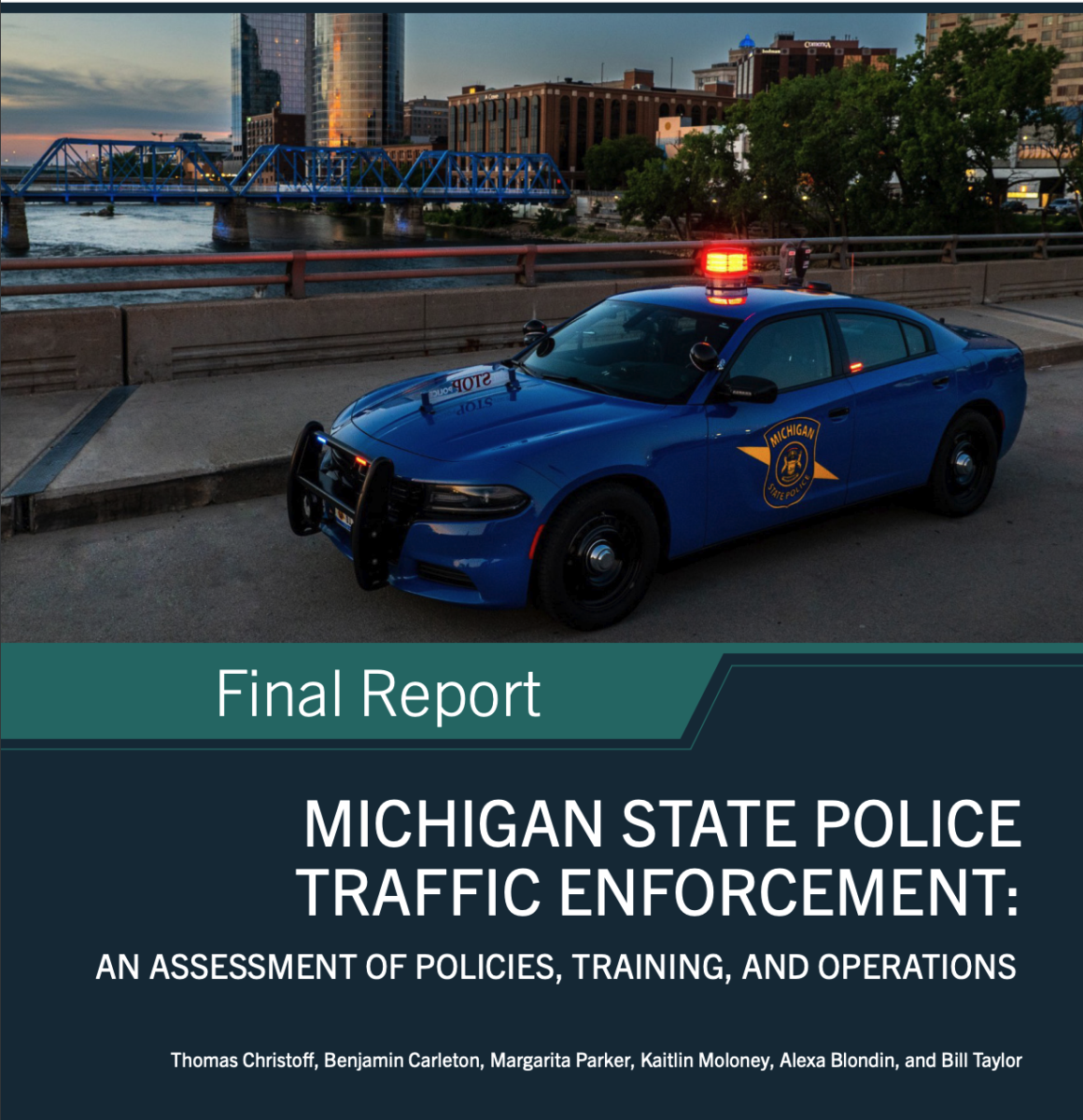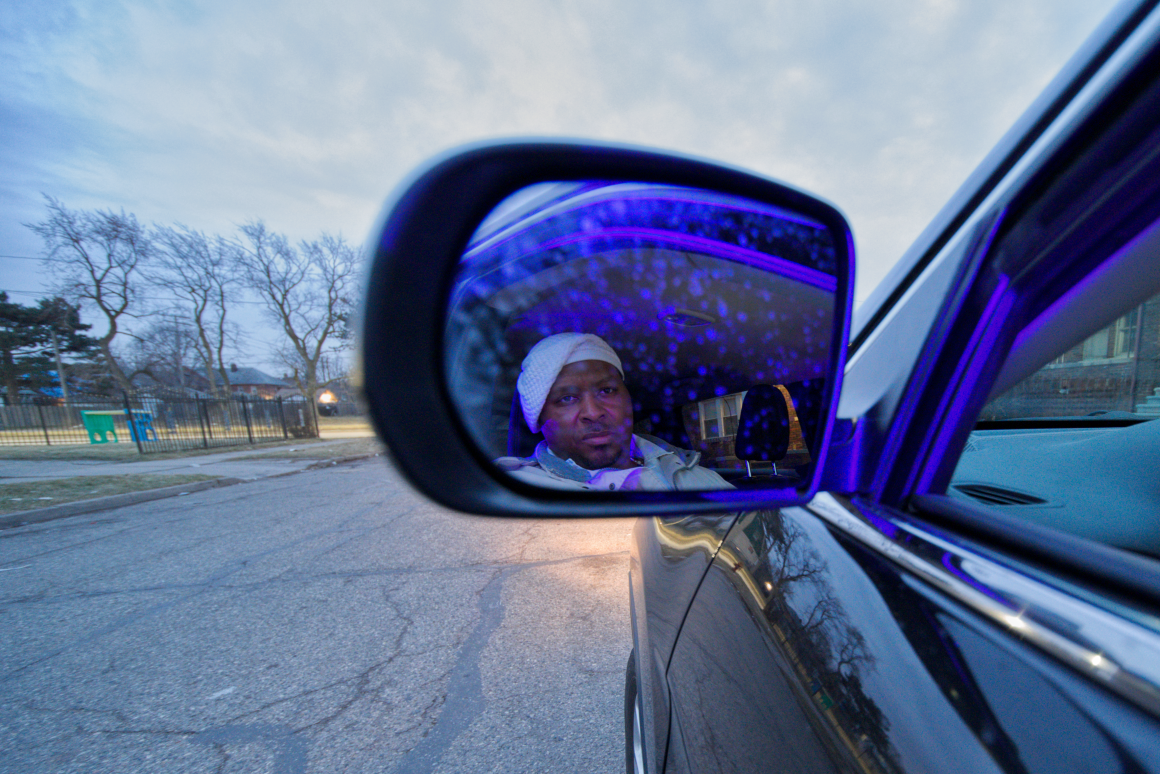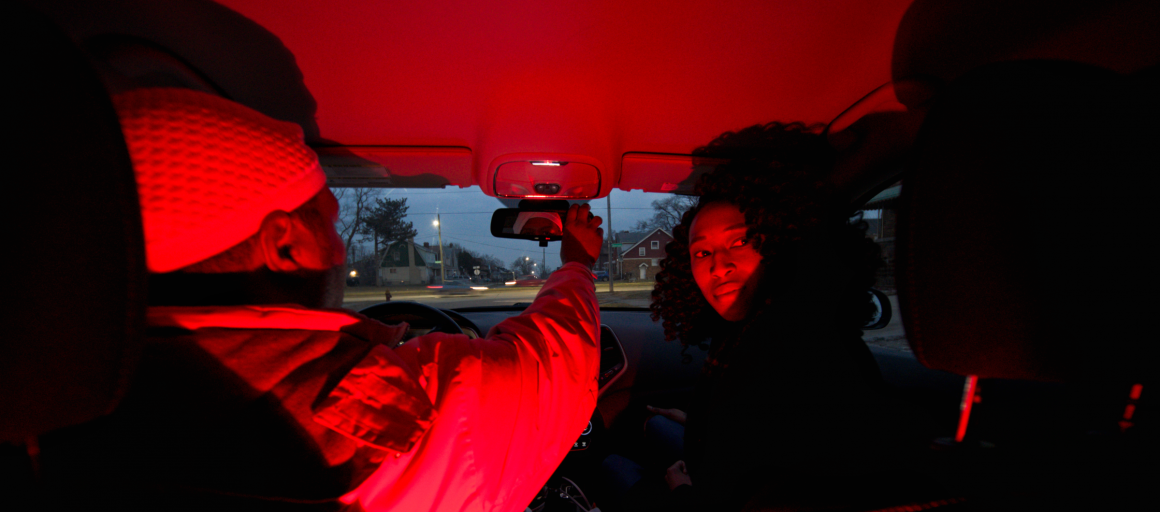Law enforcement culture is stubborn. The frequency and notoriety of illegal and improper conduct by police officers in Michigan and across the nation has done little to prompt changes in the way police do their jobs. Investment in cultural-competency and de-escalation training often yields few observable returns. Officers may be asked to police in a new way, but they are often committed to doing things the old way. Unfortunately, the old way is grounded in explicit and implicit racial presumptions and stereotypes and less than scrupulous adherence to the Constitution.

A recent independent report for the Michigan State Police (MSP), commissioned by the agency in response to ACLU of Michigan advocacy, examines reasons for racial disparities in traffic stops and provides a breakthrough opportunity to address structural racism in the agency with surgical precision.
The report exposes many practices and policies of MSP that reflect an old way of policing. Among many other things, it reports that MSP troopers are often loosely supervised and left to assign themselves to areas with high concentrations of people of color. They are apparently motivated to do so in part by informal traffic stop quota expectations considered for performance evaluations.
It doesn’t end there. When troopers initiate encounters, they are encouraged to “go beyond the stop,” which many troopers interpret as a license to look for evidence of crimes that had nothing to do with why the motorist was pulled over in the first place. Researchers reported that, as just one example, troopers consider drivers who keep both hands on the wheel and stare straight ahead during the stop as suspicious and deserving of investigation. This is ironic because many young Black people are sternly instructed to conduct themselves in this way to prevent impulsive police overreactions. The report adds that “it is rather crucial to note that ‘going beyond the stop’ frequently occurs in predominantly minority communities.”
Much More Than Statistics
Camara Sankofa and Shanelle Thomas, an African American couple, were victims of troopers who engaged in some of the worst excesses of “going beyond the stop.” Their experience became the subject of an ACLU lawsuit against the troopers involved. Troopers fabricated a reason for stopping the couple and over the course of nearly 90 minutes subjected them to prolonged interrogation and fruitless searches of their vehicle by troopers and canines. In the end, they were allowed to leave without a ticket or a warning. You can watch a compelling video showing the incident, and the effect it had on Mr. Sankofa and Ms. Thomas below.
The couple’s experience was legally problematic because they should not have been stopped in the first place unless the troopers had probable cause to believe they had committed a traffic violation. After the stop, they should not have been detained any longer than was required to issue them a ticket or a warning. Before we filed suit on the couple’s behalf, we suggested to MSP that litigation might be unnecessary if they agreed to commission an independent study of the agency and its policies and practices related to traffic stops. When the suggestion was declined, we initiated a lawsuit, and eventually, MSP agreed to the study that is the subject of the recently released report. This set the stage for a settlement of the case that included as one of its terms the opportunity for the ACLU to have full opportunity to share its own findings, concerns, and suggestions with the researchers. The resulting report is an invaluable document that validates observations made by the ACLU over the course of time and, as a practical matter, pressures MSP leadership to make needed reforms.

Years in the Making
The journey to this report was a long one. Back in 2016, the ACLU received separate complaints from African American motorists who believed their race was the sole reason they were stopped by MSP while traveling on Interstate 94. Though these people were unacquainted, their experiences were remarkably similar. They were accused of following too closely behind tractor-trailers, they were asked to exit their vehicles, their vehicles were searched, and they were asked whether they were transporting drugs or other contraband before a canine officer brought a dog to sniff the vehicles.
The ACLU submitted a Freedom of Information Act request for records that documented the history of stops made by the troopers who stopped the drivers who complained to us, and the records showed a suspicious pattern of stops of people of color. In response to our concerns, MSP acknowledged there were, at that time, no reliable or consistent records of the racial identities of persons who were stopped. This prompted a new policy of mandatory reporting of racial identity.

After the new policy had been in effect for several months, we followed up with additional Freedom of Information Act requests concerning additional troopers. The records not only showed remarkable racial disparities but also raised suspicions that troopers were checking the “unknown” racial category box to obfuscate racial stop patterns. A significant number of drivers whose race was designated unknown had Spanish and South Asian surnames.
In an apparent effort to address these concerns, MSP conducted its own study and pronounced that because traffic stop data correlated with racial demographics shown by census figures, MSP was not engaged in discriminatory policing. The ACLU dismissed the findings because they were unscientific and failed to take into account that stops made in vast stretches of the state that are racially homogeneous likely diluted and neutralized racially disparate stop patterns occurring in more diverse regions of Michigan.
Two subsequent scientific reports, published in 2021 and 2022 by researchers at Michigan State University, definitively confirmed racial disparities in MSP stops. The recently issued report builds on those MSU findings and explores institutional factors contributing to the racial disparities.
Much Remaining to Accomplish
Changing MSP policies and supervisory practices may make significant differences in how MSP does its work, but it is highly likely that stubborn police culture will not be fully dislodged. Change needed in that regard may occur only when, as a society, we have a new vision for how we ensure public safety. That starts with acknowledgment that old police culture is perpetuated by officers who are trained to function in an old way – responding to every emergency as though a gun battle will break out at any minute. In truth, most emergencies don’t require an armed response (e.g., mental health crises, drug overdoses, noise complaints, squabbling neighbors, etc.), and the officers who respond are not qualified to address such problems effectively.
If we want to break up the old police culture, let’s replace the personnel who perpetuate it with professionals who have no use for it. Law enforcement agencies should replace significant numbers of armed officers with social workers, psychologists, drug treatment specialists, mediators, and other professionals who will not only decline to buy into the idea that our communities are filled with enemies who must be dealt with by aggressive and forceful means, but who will also possess the credentials and training required to address real emergencies most effectively.
Mark P. Fancher is the staff attorney for the ACLU of Michigan’s Racial Justice Project.

